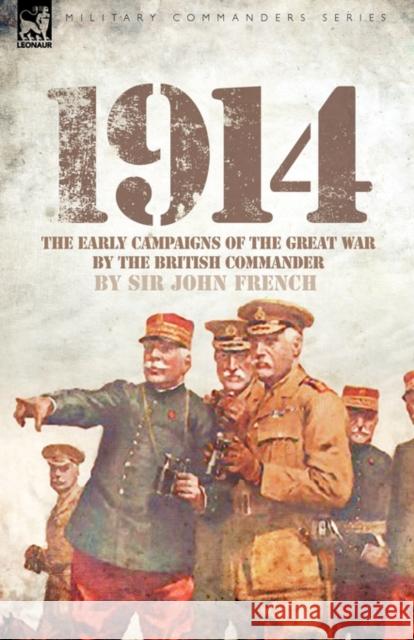1914: The Early Campaigns of the Great War by the British Commander » książka
1914: The Early Campaigns of the Great War by the British Commander
ISBN-13: 9781846776519 / Angielski / Miękka / 2009 / 312 str.
1914: The Early Campaigns of the Great War by the British Commander
ISBN-13: 9781846776519 / Angielski / Miękka / 2009 / 312 str.
(netto: 78,02 VAT: 5%)
Najniższa cena z 30 dni: 82,13 zł
ok. 16-18 dni roboczych.
Darmowa dostawa!
The commander of the BEF's view of the Great War
This book, written by Sir John French, concerns his period of command during the first period of the Great War. Predictably, as in many commander's memoirs it displays much partiality as to his own actions and those of others. This is particularly noteworthy since the consensus view of the history of the time does not judge-with much justification-French kindly. At the outbreak of the war French was the obvious choice for command and his views accorded with the government establishment if not with more forward thinking military men under his command. Fast moving German offensives revealed French's military strategy with its faith in inflexible defensive strongpoints to be hopelessly out of date. Events overtook him and were it not for Smith-Dorrien's aggressive action during the First Battle of Mons-for which seemingly French never forgave him-the BEF could easily have been overwhelmed. French became increasing out of touch and indecisive and was replaced in 1915 by Haig. This book is far from a balanced history, but is an important account of how a nineteenth century soldier saw his twentieth century war. It also contains much factual information on the dispositions of troops and actions in what was a fluid stage of the conflict.
The commander of the BEFs view of the Great War
This book, written by Sir John French, concerns his period of command during the first period of the Great War. Predictably, as in many commanders memoirs it displays much partiality as to his own actions and those of others. This is particularly noteworthy since the consensus view of the history of the time does not judge-with much justification-French kindly. At the outbreak of the war French was the obvious choice for command and his views accorded with the government establishment if not with more forward thinking military men under his command. Fast moving German offensives revealed Frenchs military strategy with its faith in inflexible defensive strongpoints to be hopelessly out of date. Events overtook him and were it not for Smith-Dorriens aggressive action during the First Battle of Mons-for which seemingly French never forgave him-the BEF could easily have been overwhelmed. French became increasing out of touch and indecisive and was replaced in 1915 by Haig. This book is far from a balanced history, but is an important account of how a nineteenth century soldier saw his twentieth century war. It also contains much factual information on the dispositions of troops and actions in what was a fluid stage of the conflict.











